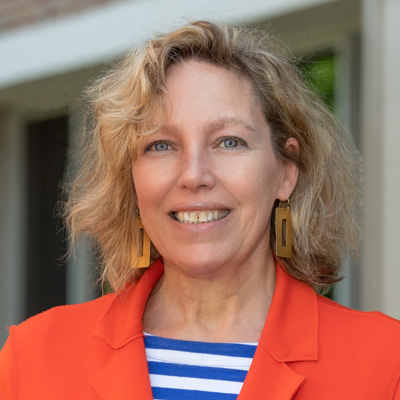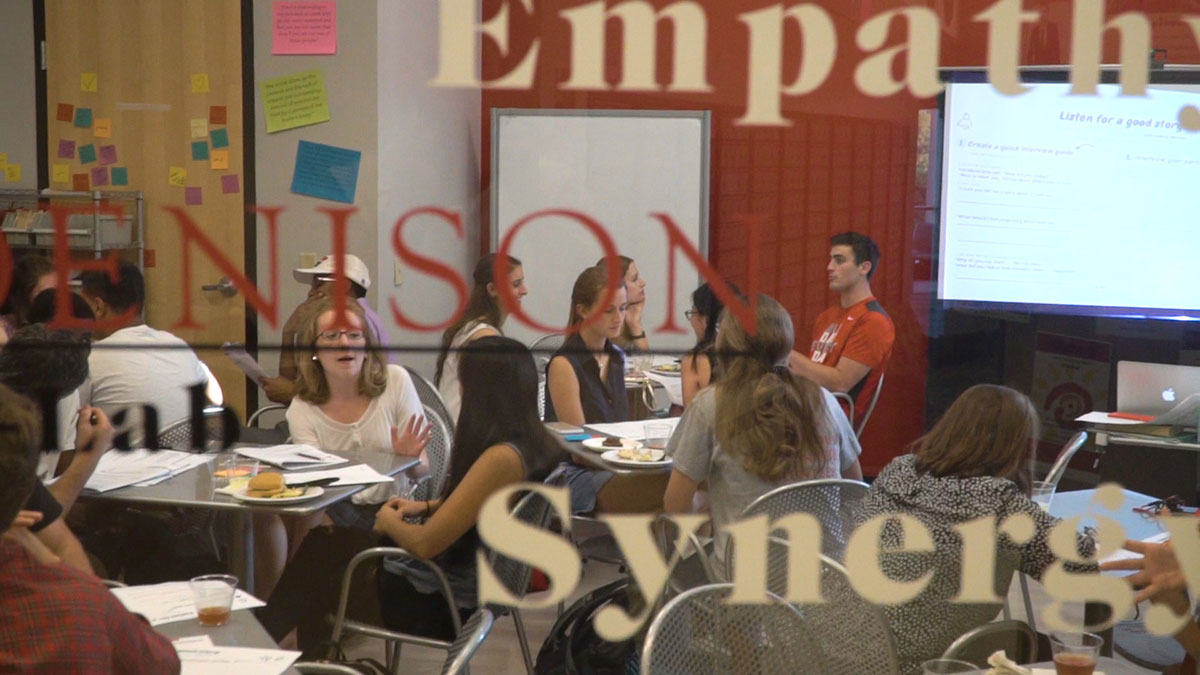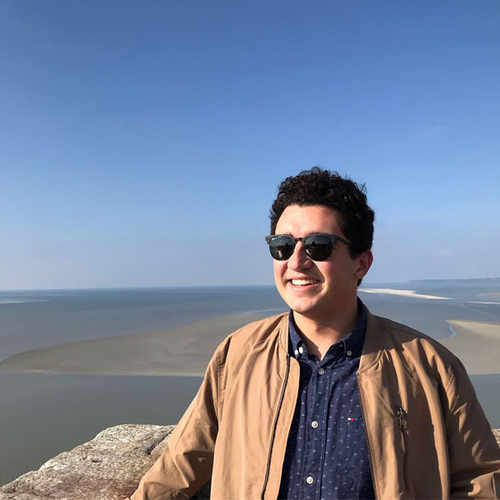Kyle Mares ‘20 wants to make an impact on campus, and he’s found what he was looking for in Denison’s Red Frame Lab, the college’s locus for design-thinking and entrepreneurship. Mares, a political science major, applied for and was accepted into the RED Corps Fellows, a group of students who work with staff professionals on “Research, Engagement and Design” (hence the name) related to subjects where student perspectives are vital to effective campus designs and decisions.
“I wanted to do something productive,” says Mares. “RED Corps is a small group with clear leadership. It gives me a venue to explore issues that are important on campus like wellness and ‘busyness’ culture.”
Mares and his fellow RED Corps students meet twice a week with the Red Frame Lab director and student development staff. Local entrepreneurs who serve as coaches and advisors are experienced and active participants. “If we’re running a focus group or conducting a survey, we often meet outside that time as well,” says Mares.
For example, Mares was part of a group that looked at the culture of busyness, which can create a toxic environment on college campuses — and beyond. “There seems to be an arms race to see who is most busy, and we seem to have more social clout if we’re busy,” he says. “More commitments make us more valuable.”
After examining multiple factors, his team decided to focus on how technology affects busyness, specifically through smartphones. The group conducted surveys using white boards in Slayter Student Union, asking “How long do you spend on the phone?” and “What app can you not live without?”
Mares and his team then conducted two focus groups, expanding these topics into an open discussion with some guided questions, such as whether smartphones make you more stressed or more productive. “We realized that smartphones help me accomplish tasks, but they are not helpful when it comes to studying,” says Mares. “They are not great for the sustained engagement that college-level work requires.”
“They also create stress with regard to how we communicate about our classwork, which is reinforced by stuff online. Social media gives us a continual comparison.”
Next steps involve creating a pilot program for shifting technology use and testing for effectiveness — then adding modifications to improve it. Finally, the group will make recommendations to Denison’s Office of Student Development for implementation. Other RED Corps teams will make recommendations on other aspects of busyness that they investigated.
RED Corps teams prepared for their deep-dives into busyness by first exploring student wellness broadly. They grounded themselves in data from the National College Health Assessment on topics like drug use, sexual health, and mental health before focusing closely on just a few topics. In that first phase, Mares was part of a group exploring student nutrition.
“We started to look at how we might change nutrition habits on campus,” says Mares. “One easy way to make an impact was breakfast — it’s an important meal and it seemed like a good place to start.”
The group looked at how students eat — or don’t eat — breakfast. They examined factors that affected those decisions, like the amount of sleep they had, the timing of their classes, whether a good nutritionally dense breakfast was close at hand. The group developed a prototype solution, one of several possibilities that RED Corps may implement in Spring 2020.
Mares realizes that this work has impacted his own view of healthy living.
“Now I try to do what is good for my body - which looks different on different days. As a result of RED Corps, I’m better about eating breakfast, and I do yoga twice a week,” he says. “I’ve become more conscious of healthy habits.”


